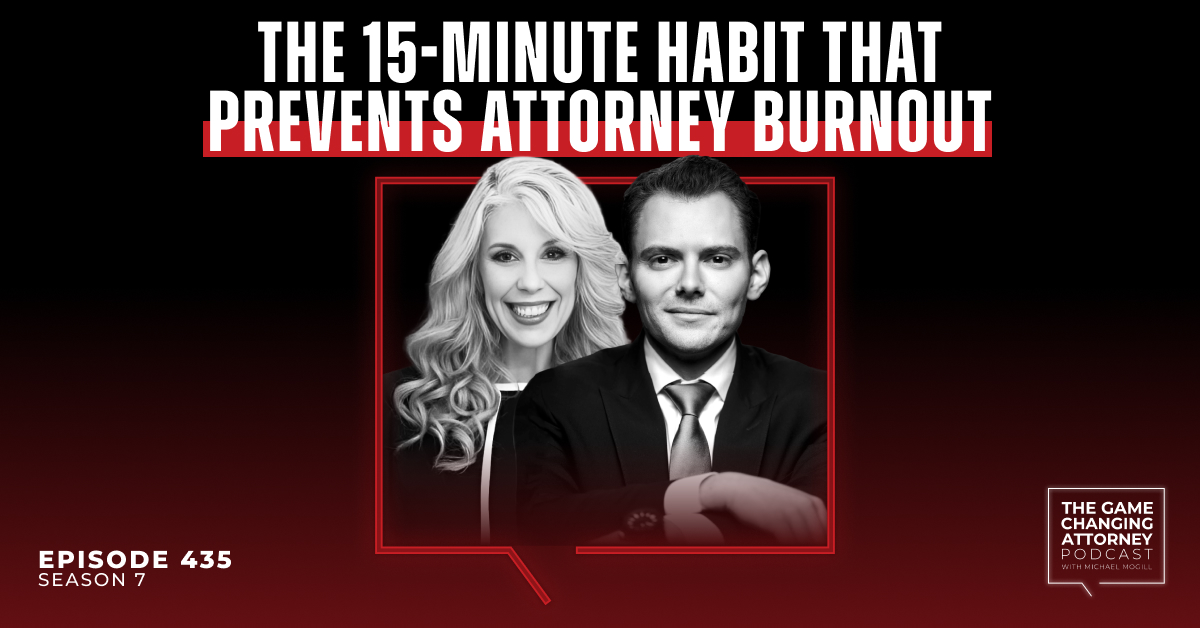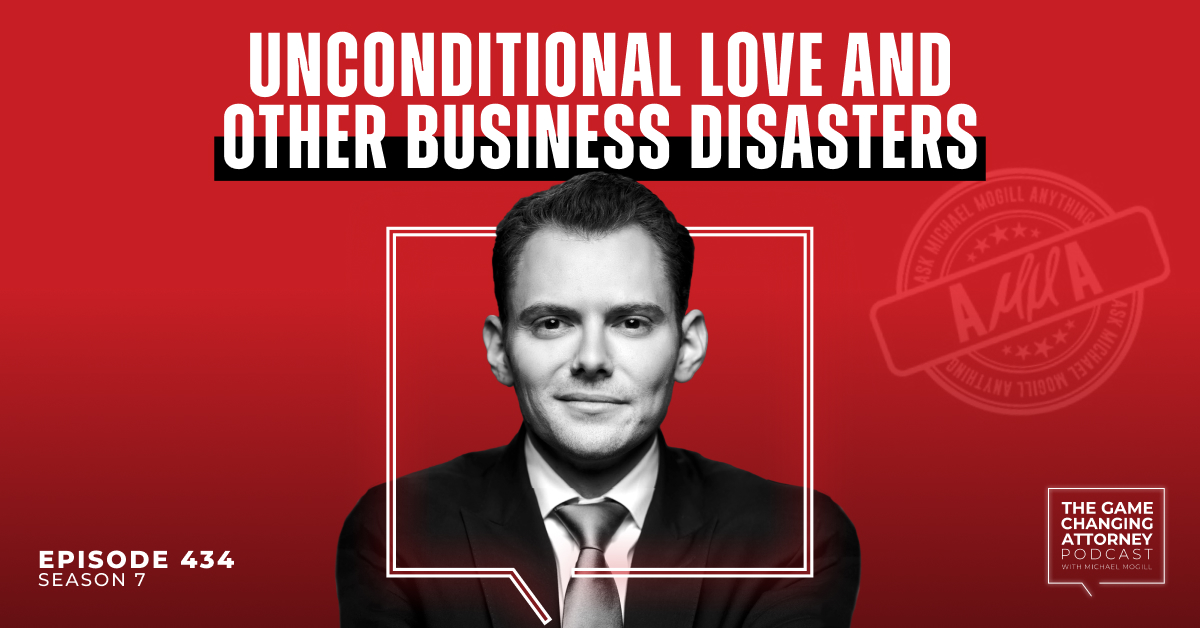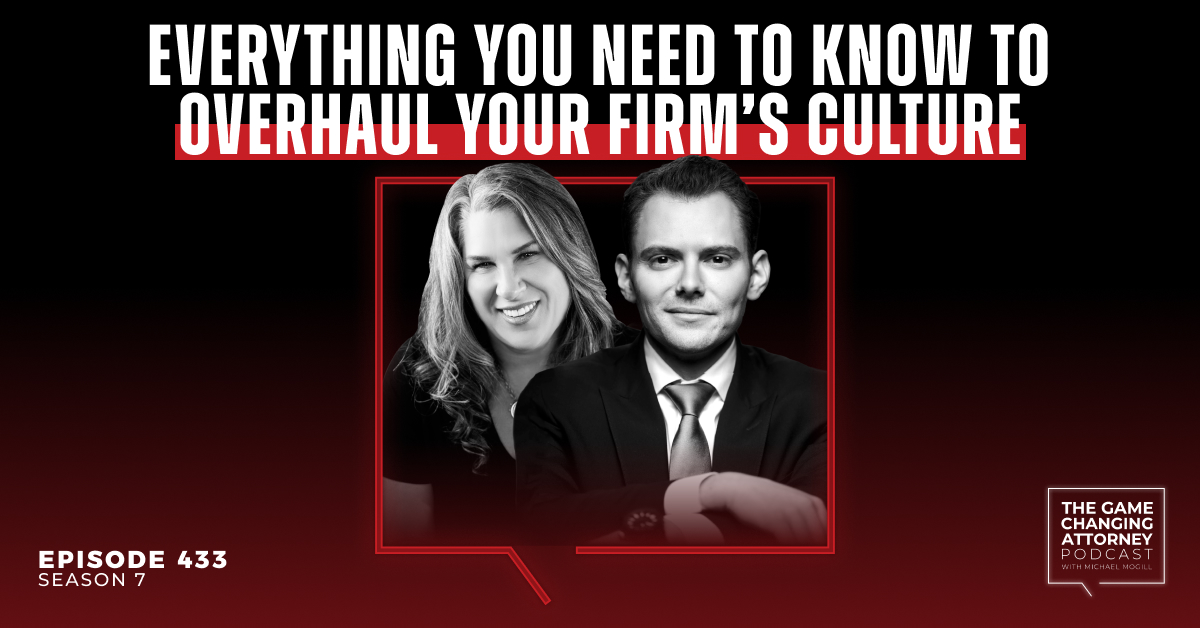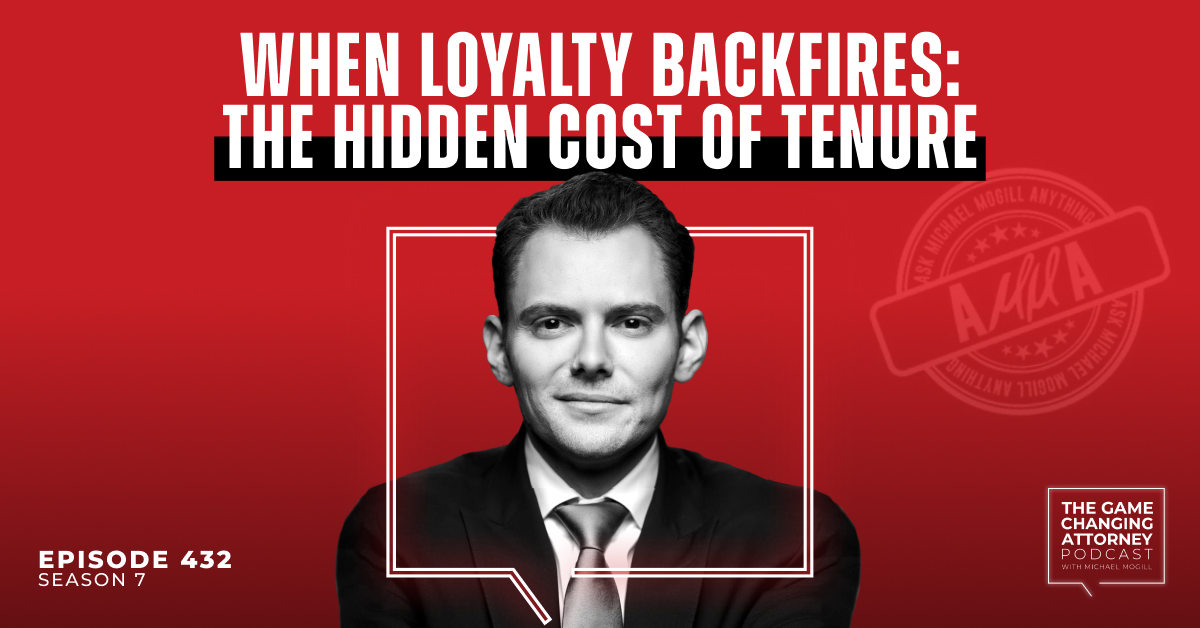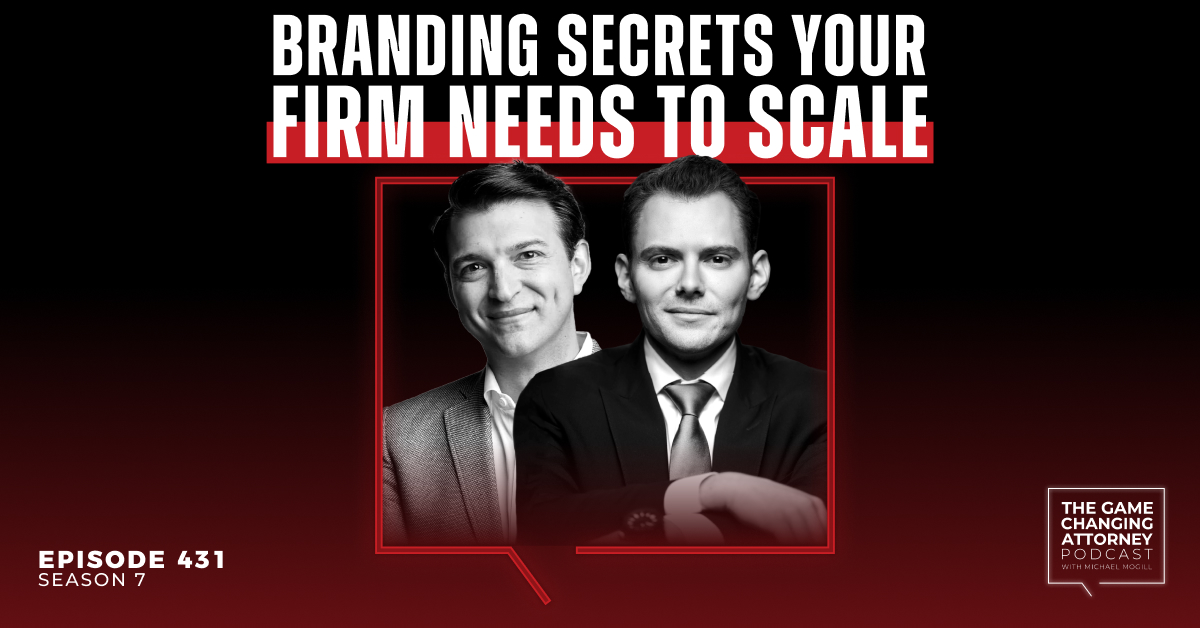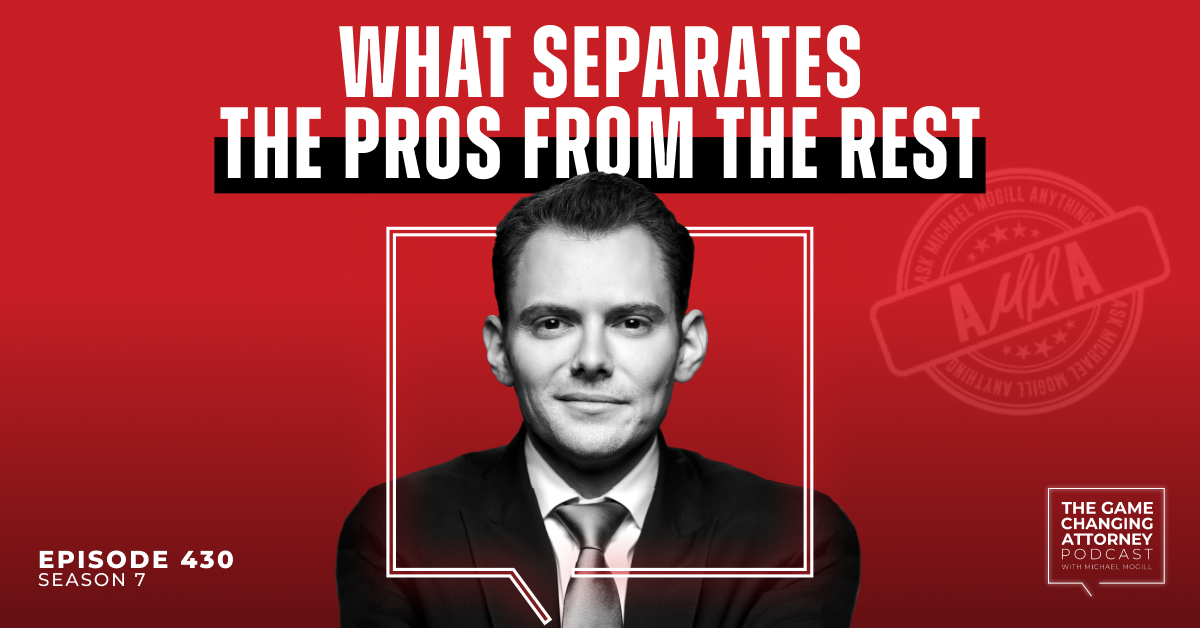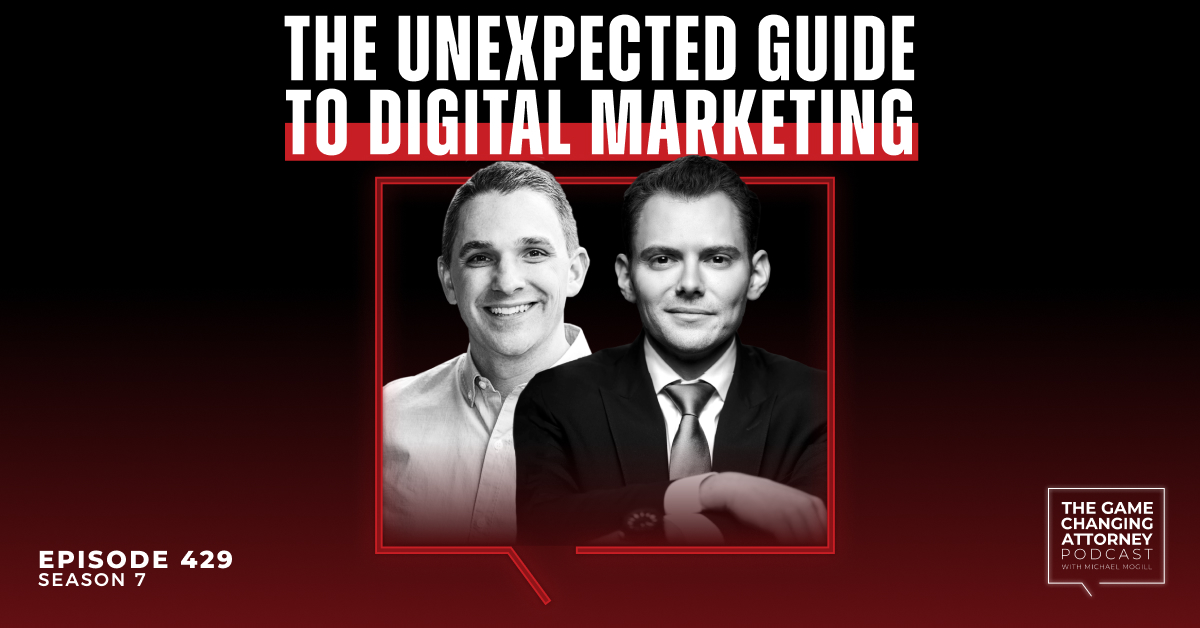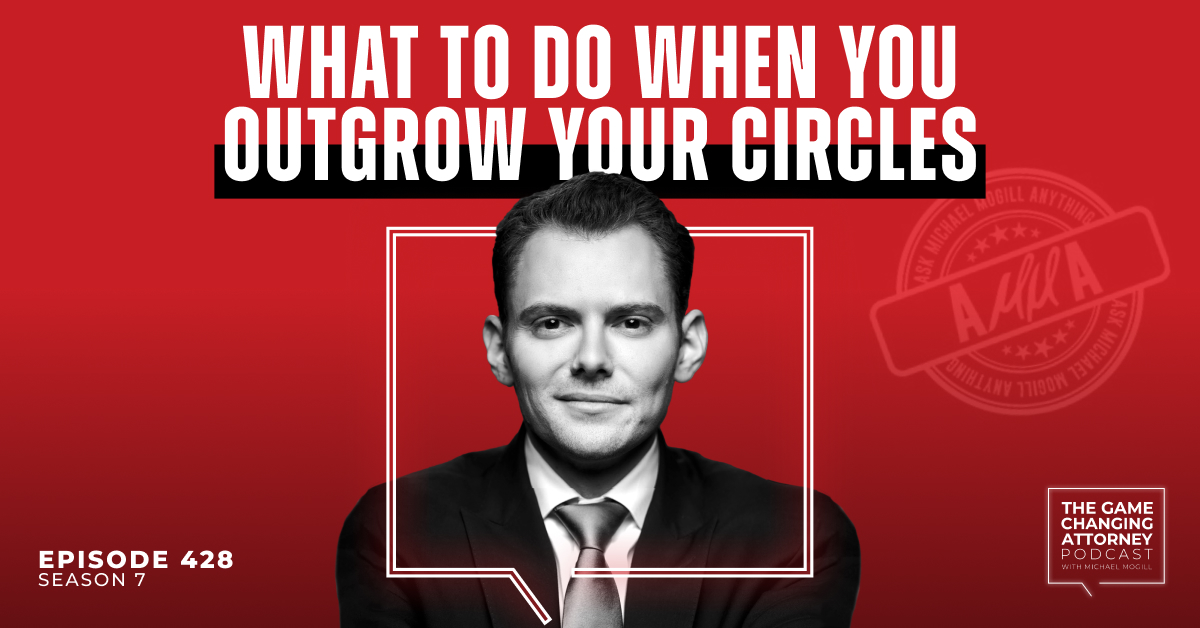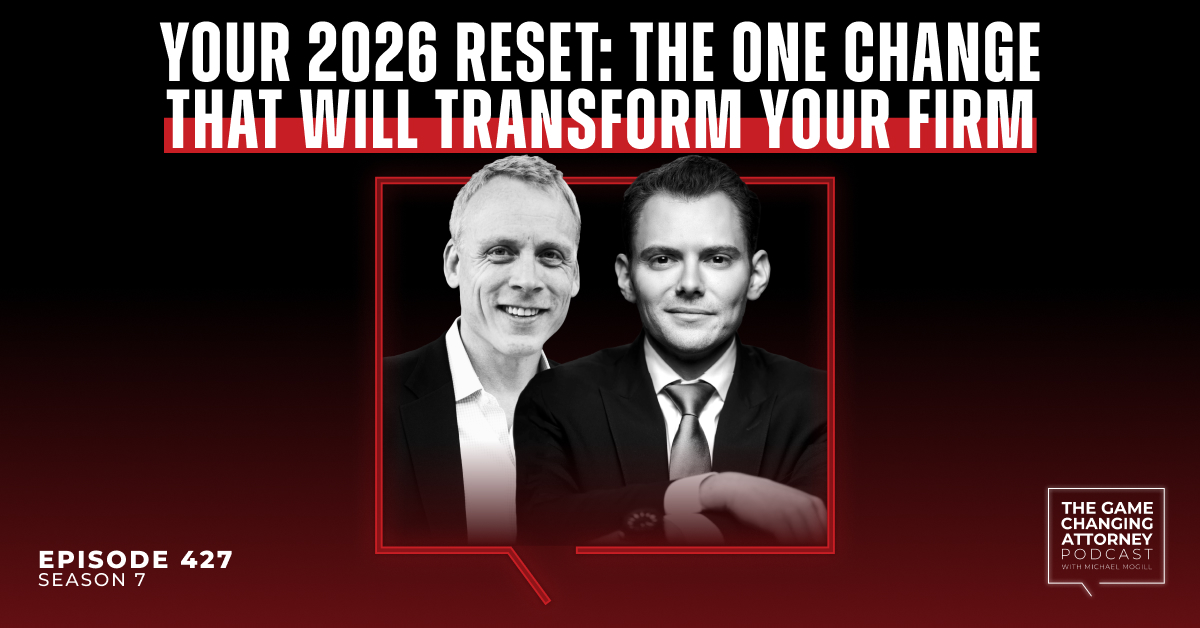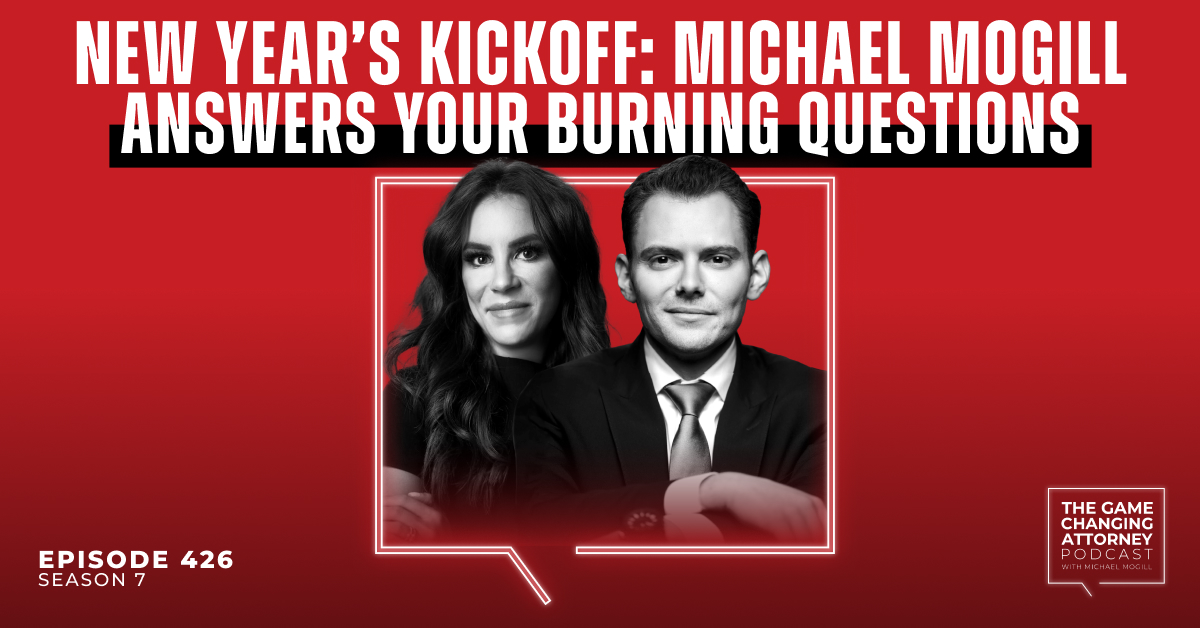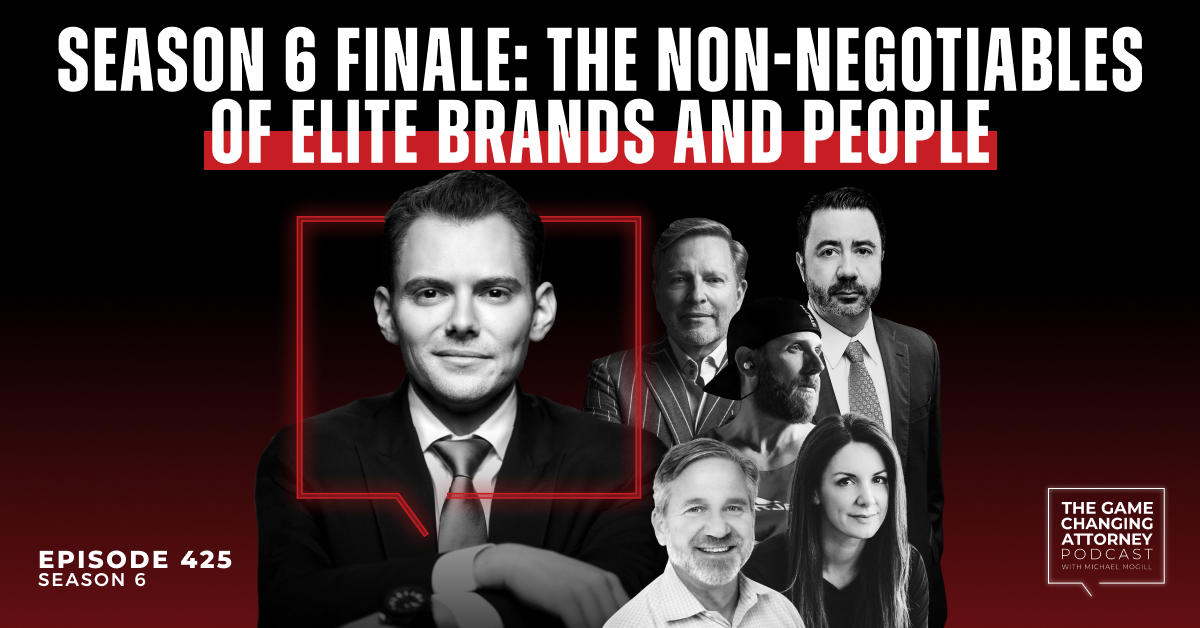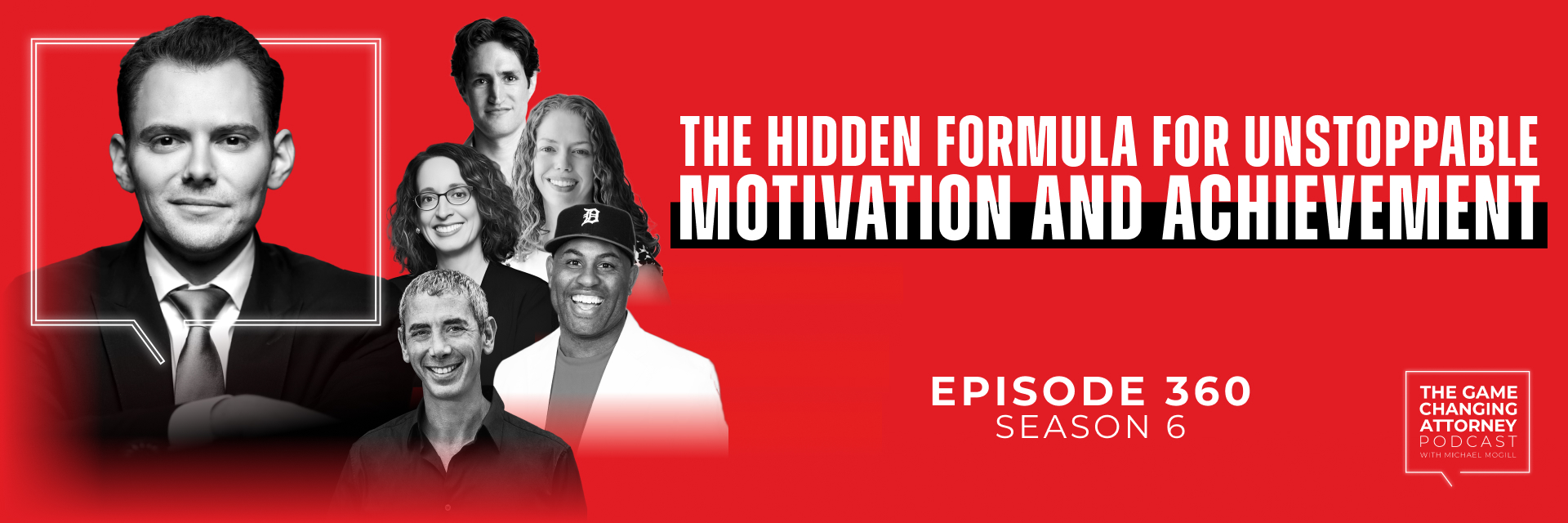
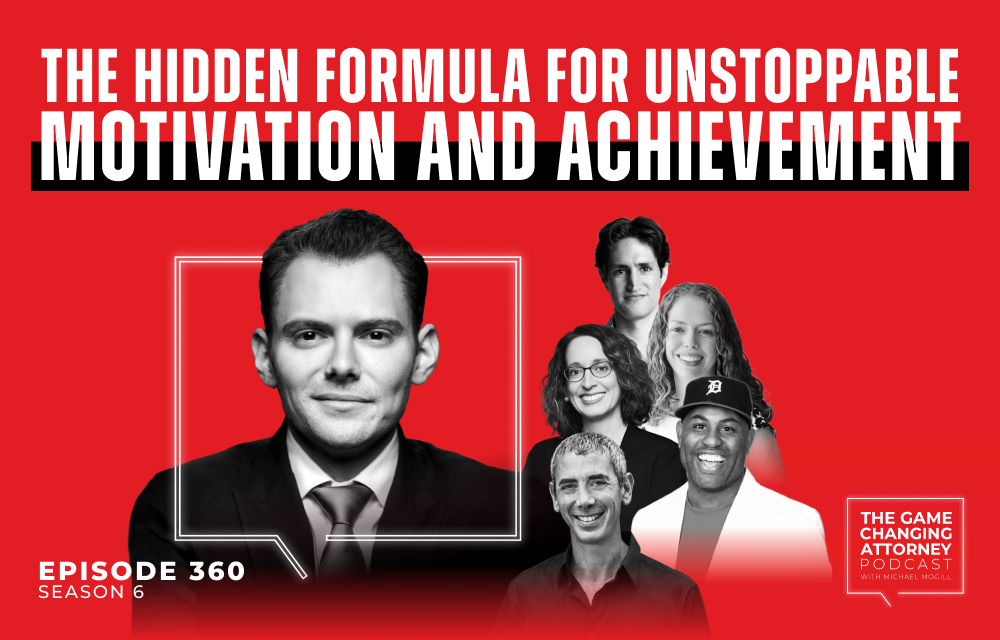
Episode 360 — The Hidden Formula for Unstoppable Motivation and Achievement
As we continue celebrating five years of The Game Changing Attorney Podcast, this next installment in our special retrospective series highlights the thought leaders who challenge conventional thinking, reframe limitations, and expand what’s possible — both personally and professionally.
In this Mindset Expanders edition, we feature experts who have helped millions push beyond mental roadblocks, build better habits, and unlock sustainable performance. From behavior change and self-control to high achievement and peak flow states, these conversations will reshape the way you think about growth — and give you the tools to pursue it with purpose.
This episode features:
- Katy Milkman: On how to overcome present bias, build habits that last, and make positive behavior change more enjoyable.
- Ayelet Fishbach: On mastering self-control by designing smarter environments and identifying competing goals.
- Adam Alter: On reframing failure, embracing challenge, and why discomfort is the key to long-term meaning.
- Eric Thomas: On why effort matters more than talent — and how understanding motivation can unlock your team’s full potential.
- Steven Kotler: On how fear, focus, and flow states can be leveraged to achieve peak performance in any field.
If you’re ready to think bigger, act bolder, and lead with clarity, these mindset-shifting conversations will show you how to break through to your next level.
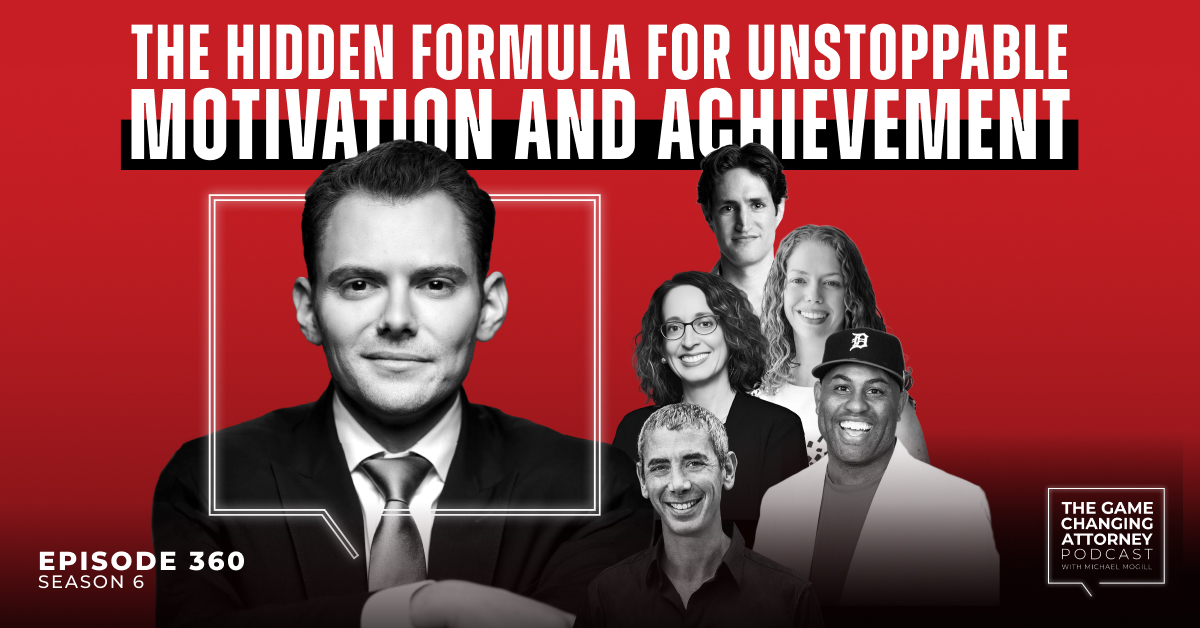
Listen & Subscribe
Show Notes:
Katy Milkman: Conquering present bias with lasting behavior change. “So ultimately, of course, a decision maker would sort of think about the global picture — not only what joy and pleasure I’ll get today from a choice, but also what the long-term consequences will be. But because we are wired to focus more on the present than on the long run, we make decisions that are short-sighted. Too often we overspend when we should save, we overindulge when we should cut back. And so this can be a huge barrier to change — that tendency to focus on the instant gratification. One of the most powerful tools we can use to change our behavior for the better when we face present bias is to make it instantly gratifying to do the things that are good for us in the long run… I often call it the Mary Poppins effect, because if you remember Mary Poppins, she sings about the spoonful of sugar. If we recognize we need to make it fun to pursue our goals, we’re going to be much more likely to persist.”
Katy Milkman: The power of community on goal achievement. “It might be the most important factor… There’s a huge influence that social forces play on our ability to achieve our goals. The people who we surround ourselves with show us what’s possible. They give us hints as to what we can do to achieve similar objectives. So to the extent that you can actually craft a community of like-minded individuals — that you can build groups that you socialize with intentionally who have similar goals and shared aspirations — it’s really, really valuable. If you can form a group of people with similar goals, whether it’s people who want to run a marathon or people who have similar business objectives… you’re more likely to follow through on them yourself because you don’t want to be hypocritical.”
Ayelet Fishbach: What it really takes to exercise self-control. “Self-control kicks in when there are two things that we want to achieve, and we prioritize one over the other. It’s a specific goal conflict. Maybe I want to eat healthy food more than I want to eat unhealthy food. Or maybe I want to control my temper more than I want to express how I truly feel. What it takes to be successful at self-control is, first, to identify that there’s a problem. And then second, to battle that temptation — to be able to overcome it… When people are aware that they are going to have a temptation, they are better prepared mentally, and often physically, to resist. So interventions such as reminding yourself that it’s going to be a tense situation or that you’re going to be tired help you exercise self-control in the moment.”
Ayelet Fishbach: Why your environment determines your discipline. “You should always start with environment… If there are no donuts in my office, it is much easier not to eat them. So do the things in your environment that make it easier. Let me give the example of working from home. Back in the days when we all worked in the office, it was easy not to feel tempted to do my household chores. But now, when we work from home, you have to build all these self-control devices. Maybe I cannot quite work in my kitchen because there is just too much that is distracting. We should design our environment so that there are fewer temptations and we should constantly adjust where we put ourselves so that it’s easier to get things done.”
Adam Alter: Why the hard things matter most in the end. “If you speak to people at the end of their lives and ask them to look back on the things they found most rewarding, no one ever says, ‘I wish I hadn’t said yes to that challenge.’ What they usually say is, ‘I kind of wish I had done more. I’d said yes more often. I’d done the hard things.’ It’s those periods where we feel really alive — when we’re making progress, when we’re moving forward. So I think you owe it to your future self to take on those challenges. At the end of our lives, that’s where we derive the most meaning from.”
Adam Alter: Building resilience through chosen hardship. “I’m a huge fan of diversity in our experiences and our pursuits… You should have something you do that you’re really good at. But you should also do things where you are an absolute novice. Everything you do is a steep learning curve and the gains are tremendous. Just by embracing these different levels of expertise, I think you become a much more rounded human being. And those are the hardships you invite into your life by saying, ‘I want to do this thing’ — and you get better at dealing with the uninvited hardships by learning how to deal with the ones you choose.”
Eric Thomas: Talent is overrated — effort is everything. “Effort is the indicator of interest… I go to NFL players and say, ‘You’re an all-star, but you’re not a superstar. Your talent is 120. Your effort is about 70.’ I travel to corporations, athletes, just normal people — and it’s like, man, you want to give 70%? What would life look like if you gave 120%? I don’t think success is as much about talent as we like to believe. It’s about desire… I don’t believe I’m more skilled than Tony Robbins or Les Brown — but I don’t know how many people are getting up at 3:00 in the morning doing a video, doing a video at noon, and at night. You might have a network, but you will not outwork me. That’s effort. That’s desire.”
Eric Thomas: Speak their language if you want them to follow you. “What leaders do wrong is they speak the wrong language. They assume that what drives them also drives everyone else… There was a company that wanted to hire me, and they bragged about the money and the exposure — but they said I couldn’t keep putting out free content. That was a dealbreaker. I’m trying to give people access to the American Dream. They almost got me because they offered scholarships for my students at Michigan State — they spoke my language. I think if leaders spent more time figuring out what moves their team and learned to speak their language, we’d do a much better job.”
Steven Kotler: The formula for peak performance. “What we call peak performance is really nothing more than getting our biology to work for us rather than against us… There’s a category under motivation, another under learning, another under creativity, and finally, flow — the optimal state of consciousness where we feel our best and perform our best. Motivation gets you into the game. Learning allows you to continue to play. Creativity is how you steer. And flow turbocharges your results. If you align those with proper goal setting, you get tremendous push going forward. We all share a lot of overlap biology. We can all use the system — the question is how.”
Steven Kotler: Fear as a performance tool. “A little bit of fear — a little bit of norepinephrine and cortisol — is great. It amplifies learning and focus. But too much blocks performance. Peak performers start to figure that out. That’s why you see so much meditation, gratitude, and exercise — all practices that retune the nervous system and lower anxiety. The brain has a fixed energy budget. Most of it is spent unfocused. So any time you get focus for free, it’s a big deal — and fear gives you that. As long as you’re not overwhelmed, fear can be a powerful directional arrow for performance.”
Connect with Michael
- Text directly at 404-531-7691

